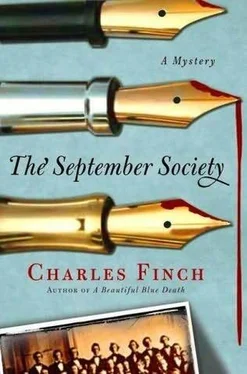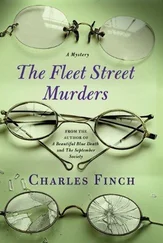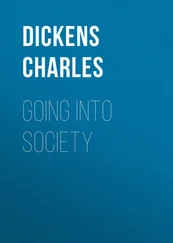Charles Finch - The September Society
Здесь есть возможность читать онлайн «Charles Finch - The September Society» весь текст электронной книги совершенно бесплатно (целиком полную версию без сокращений). В некоторых случаях можно слушать аудио, скачать через торрент в формате fb2 и присутствует краткое содержание. Жанр: Исторический детектив, на английском языке. Описание произведения, (предисловие) а так же отзывы посетителей доступны на портале библиотеки ЛибКат.
- Название:The September Society
- Автор:
- Жанр:
- Год:неизвестен
- ISBN:нет данных
- Рейтинг книги:4 / 5. Голосов: 1
-
Избранное:Добавить в избранное
- Отзывы:
-
Ваша оценка:
- 80
- 1
- 2
- 3
- 4
- 5
The September Society: краткое содержание, описание и аннотация
Предлагаем к чтению аннотацию, описание, краткое содержание или предисловие (зависит от того, что написал сам автор книги «The September Society»). Если вы не нашли необходимую информацию о книге — напишите в комментариях, мы постараемся отыскать её.
The September Society — читать онлайн бесплатно полную книгу (весь текст) целиком
Ниже представлен текст книги, разбитый по страницам. Система сохранения места последней прочитанной страницы, позволяет с удобством читать онлайн бесплатно книгу «The September Society», без необходимости каждый раз заново искать на чём Вы остановились. Поставьте закладку, и сможете в любой момент перейти на страницу, на которой закончили чтение.
Интервал:
Закладка:
“The dances rotate through the colleges alphabetically?”
“Yes, Mr. Lenox. George and Bill took out subscriptions from their first week last year, and came to dance.”
“Did you dance, too?”
“Heavens, no. I serve punch and tick off names on the subscription list.”
“And over time you had a friendship with George,” he said.
“Yes,” she said, tears welling up in her eyes again. “But I didn’t write to tell you about this, I wrote to tell you about Friday.”
“What happened?” he said.
“The first odd thing was that his dance card was blank, Mr. Lenox. That never happened.”
“What did he do?”
“He stood off to the side, occasionally speaking with his friends, and occasionally having a word with me.”
“Did you notice anything else?”
“One other thing, actually-toward the end of the evening-”
“What time would that be?”
“Oh, quarter till eleven, perhaps.”
“Go on.”
“Toward the end of the evening, I saw him out in the quadrangle here at Jesus arguing with a man older than himself.”
“Can you describe him?”
“I can’t really, no, I’m afraid, because it was dark out. I saw that he wasn’t a student straight away from his dress, you see, and from the way he carried himself.”
“And you didn’t overhear them?”
“No, I’m afraid I didn’t. I’m sorry I can’t help more. But with what came afterward, it began to seem so strange!” She burst into tears again.
“On the contrary, you’ve been a great help. And you can trust that we’ll do whatever we can.”
“I’ve been so lonesome, Mr. Lenox!” she said, looking up at him with wet eyes.
Lenox didn’t speak for a moment, and then said, “How about this, Rosie: You and I shall be friends. Whatever I know, you’ll know. I’ll write you notes every other day or so and tell you what’s happened. A proper friendship.”
“Thank you,” she said, unable to say anything else.
A few minutes later they parted. Lenox thought of her, all alone over the past days with the terrible secret of her love and its defeat, aching to help, unequipped by her upbringing or her experience in the world to cope with her emotions. And felt at once a great pity for and admiration of her.
He had to catch his train in twenty minutes, but first he went back to the hotel and left Graham a note that read, Will you please find out whether Hatch attended the Jesus College dance last Saturday? An older man reported there. Thanks, CL.
CHAPTER TWENTY-THREE
W ith unwelcome force, the question of Lady Jane returned to Lenox while he was on the train. To distract himself he took his bag down from the rack to find a book-he was alone in his compartment, the train being relatively empty-and found atop his clothes Theophilus Butler’s entry in Who’s Who, copied out in Graham’s precise handwriting. He must have done it that morning, remembering that Lenox had forgotten to look into the book. It read: BUTLER, Maj. (ret.) Sir Theophilus Fitzgerald, KT. cr. 1844. D.S.O.; born 1814, 2nd Son of George Theophilus Butler and of Elena Miles daughter of John Fitzgerald, Dublin.
Address: 114 Green Park Terrace, W. 1. Educated: Radley School and Sandhurst Military Academy; served with H.M. forces 1840/52 (Major, 12th (East Suffolk) Regiment of Foot, 2nd Battalion). Recreations: Military History; Eastern Studies; Musicology. Clubs: Army and Navy; September; Whites. Arms: Ermine, 3 griffins courant, argent; motto: Comme je trouve.
Lenox noticed that he was from an Irish family, perhaps one that had emigrated to England some time back, at least on his father’s side. It was odd for Butler, given his background, to have served in the East Suffolk. Of course, from the profile it was difficult to tell how he would be-either a bluff, courteous old soldier, completely ignorant of anything to do with George Payson, or the mastermind of the whole thing. He had the Distinguished Service Order, so he was brave, and he had been knighted, so the chances were that he had connections either in court or in the upper stratum of the military hierarchy.
Turning the page over, Lenox saw that Graham had also copied out the entry for John Lysander, the Society’s admissions director, and written below it that Peter Wilson, the cofounder of the Society with Theophilus Butler, wasn’t listed. Lysander’s looked like this: LYSANDER, Capt. (ret.) John; born 1821, son of Capt. John Lysander and of Louise Wright, daughter of Homer Allen of Windon Manor, Hants. Address: 116 Green Park Terrace, W. 1. Educated: Thomas College, served with H.M. forces 1841/49 (Captain, 12th (East Suffolk) Regiment of Foot, 2nd Battalion). Recreations: Military History, Chess. Clubs: Alpine; Army and Navy; September. Arms: Sable, 3 hares courant; motto: Lysanders Lead the Charge.
Interesting that he lived just two houses down from Butler-from the look of it they had probably served together quite closely, a friendship bred in the officers’ mess and only allowed to flourish when both were decommissioned and allowed to meet again on a slightly more equal footing. Thinking it over, it seemed odd that a club should be devoted to such a small group of men, but Lenox decided to reserve judgment until he found himself on Pall Mall.
His first destination when he left the train, though, was Hampden Lane and home. He wanted to check the post, have a cup of tea, and change his clothes before he went out again, and he wanted as well, though he wouldn’t admit it to himself, to check in on Lady Jane. When he arrived at their slender, homey lane, however, she wasn’t there, and according to Mary, who was in charge of the house in Graham’s absence and seemed to be filled with a mortal terror of her new and lofty position, Lady Jane had been away the entire day. It was vexing: For so many years she had simply been at hand, and now, in these days when he most wanted to see her, she was nowhere to be found. Who was the lean man in the gray coat that he had seen emerging from her house? Why had her carriage been in the Seven Dials?
It was the middle of the afternoon by the time Lenox left for Pall Mall. He decided to take the trip on foot, stale as he felt from the train. London looked its best, too, austere on its high horizon, the cold, white, ancient stone of its buildings agleam in the fading sunlight. On the ground the city traded austerity for intimacy, a kind of companionship in the mass of people along the streets, the shuffling red leaves under the carriage wheels, the brightly lighted rooms just above street level. The briskness in the air was refreshing to Lenox, snapping some red into his cheeks and clearing the fuzziness travel always gave him from his brain. By the time he had turned into Carlton Gardens, the site of the September Society, he felt ready again to clear the corresponding fuzziness of George Payson’s death and Bill Dabney’s disappearance.
Two small, rectangular brass plates were affixed to the door. One said THE BIBLIUS CLUB plainly enough, while the other only said, rather cryptically, THE SOCIETY. The building was a Regency town house. Its first floor extended behind to about twice the length of the upper floors, so the areas of the two clubs must have been roughly similar. The door was of barred glass and bore one unfamiliar crest (which must have belonged to the Biblius) and one with the familiar cat on it. Lenox only had a moment to gather all of these impressions, because as soon as he paused in front of the building a doorman in a morning suit had stepped out through the door. Behind him Lenox could see a small but tidy entrance, about five feet by five feet, which had two doors plainly leading to the two clubs. The doorman had been having his tea, Lenox saw. He was a middle-aged fellow with graying hair and an intelligent, humorous face.
Читать дальшеИнтервал:
Закладка:
Похожие книги на «The September Society»
Представляем Вашему вниманию похожие книги на «The September Society» списком для выбора. Мы отобрали схожую по названию и смыслу литературу в надежде предоставить читателям больше вариантов отыскать новые, интересные, ещё непрочитанные произведения.
Обсуждение, отзывы о книге «The September Society» и просто собственные мнения читателей. Оставьте ваши комментарии, напишите, что Вы думаете о произведении, его смысле или главных героях. Укажите что конкретно понравилось, а что нет, и почему Вы так считаете.












